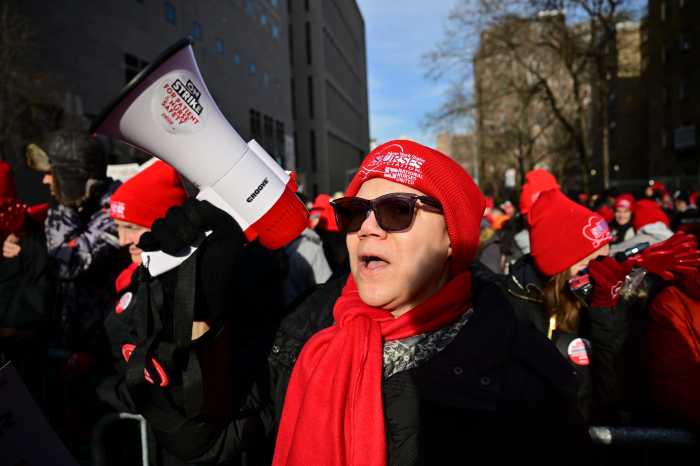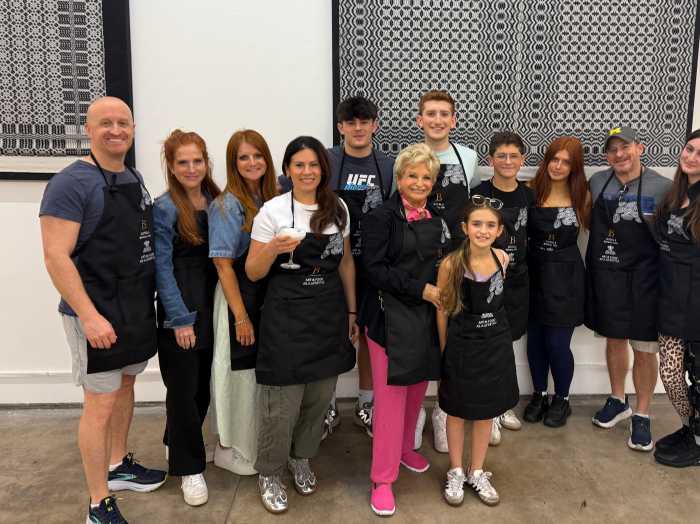Andrew Brookner is not taking his senior years sitting down.
Over the past 15 years, the 63-year-old ophthalmologist has done nine Ironman events (that’s running, cycling and swimming a combined 140.6 miles in one day), about a dozen half-Ironman events and 15 marathons. He’ll soon add to his count over the next few months, with a schedule that includes a half-Ironman in Middlebury Connecticut, this weekend, and half-Ironman events in Maryland, Quebec, Canada, and Austin, Texas in September and October.
In honor of National Senior Health & Fitness Day on May 28, the Stuyvesant Town resident shares what he’s gained from being active post-50.
What got you started doing these races?
I wanted to do a marathon before I was 50, so I did one at 49 and kind of got hooked. For a few years I was doing marathons, then I got interested in triathlons about six years ago.
What interested you about triathlons?
I’ve always loved running. I’ve also always loved swimming and biking. The triathlon was a sport that allowed me to do all three, which was really interesting and challenging. The other thing is, as you get older, if you only do one thing, you run higher risks of getting injured. For a few years I was basically running five to six times a week. After a few years of that you start to break down a bit. I found with the triathlon, I wasn’t getting injured as much. Running was one of the most taxing of the three sports. But if I do a swim after a long run, it’s great recovery. Biking is a little tougher on the legs, but also more forgiving.
Where do you train?
There’s a nice running path along the East River, about a half-mile from my apartment. I can leave my house, go along the East River and if I have enough time can go up along the Hudson River. I can basically run as long as I want. I’ve done 20-mile runs that way just jogging along the rivers without dealing with traffic. I swim at the McBurney YMCA on 14th Street, it has a beautiful pool. Most of the cycling is done in my living room. On the weekends, I’ll head up out of the city. This last Saturday I did a ride along 9W to Nyack.
What is your typical week like?
At this point, I try to swim three times a week and run three times a week and bike three times a week. During the week, I’ll do the shorter workouts, and the weekend do a long run and long bike ride. I can comfortably fit in nine workouts a week. It’s tough, but it’s something you just get used to. For me, it’s almost automatic at this point. Get up early, go to the pool and go to work. Get up early, go for a run, go to work. In the evenings, I’ll just hop on the bike in the living room for an hour. The evening workouts get to be a challenge, sometimes I’m just too tired. And if I don’t have a race coming up I tend to slack off on the weekend. But if you get up early and work out, it really energizes you.
Were you always this active?
Since high school; I was on the wrestling team. I came to understand the psychological importance of being physically fit. For me, physical activities have been a way to deal with stresses and hardships. Endurance sports really started when I lost my younger brother to AIDS in 1989. My other brother and I started doing endurance events together to honor my brother. It started as a way to remember my brother, and deal with the loss of my brother. Now it’s just become a lifestyle.
How else has it impacted your life?
I’ve met a lot of people through these activities, people I train with and socialize with. Triathletes have a lot to talk about. They love to talk about races, equipment, the latest innovations. It’s one of those things that gives you something to talk about to other people you might not normally have that much in common with.
Any advice for other senior athletes?
I think it’s just the best thing you can do physically and mentally for your health. I’m 63, I have a low pulse, low blood pressure, I’m not taking any medications whatsoever. There’s nothing comparable to the rejuvenating power of exercise. That being said, if you’re not used to it, you have to start off slowly and be patient, and it will have its rewards if you stick with it.




































